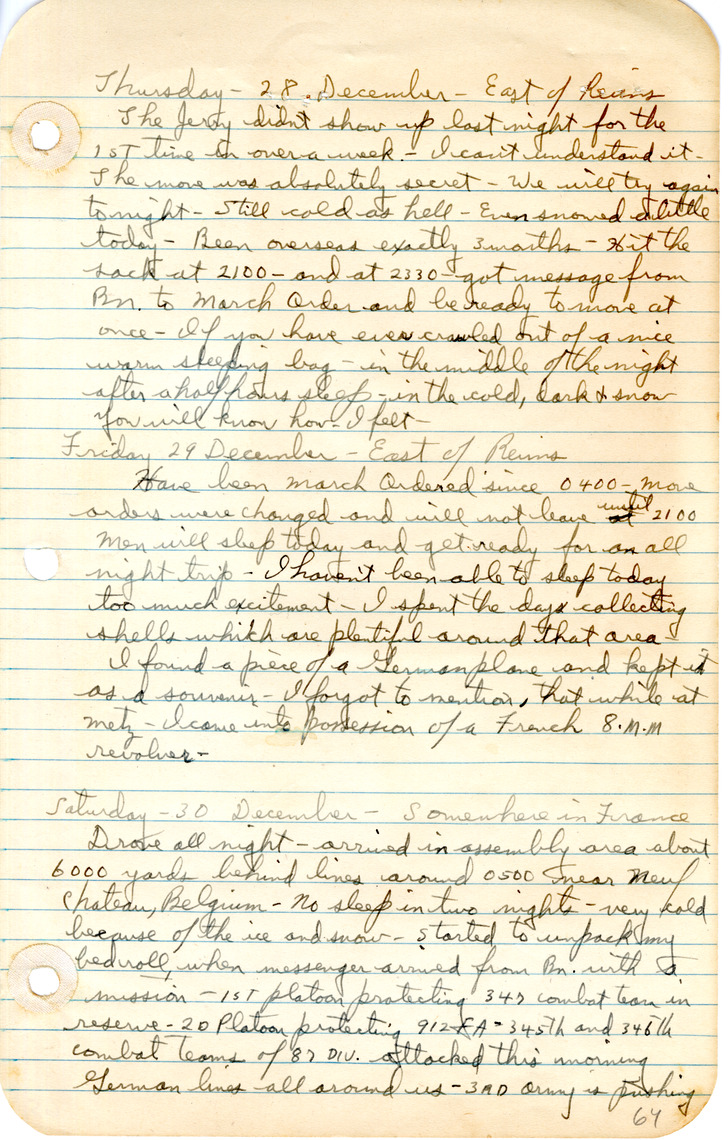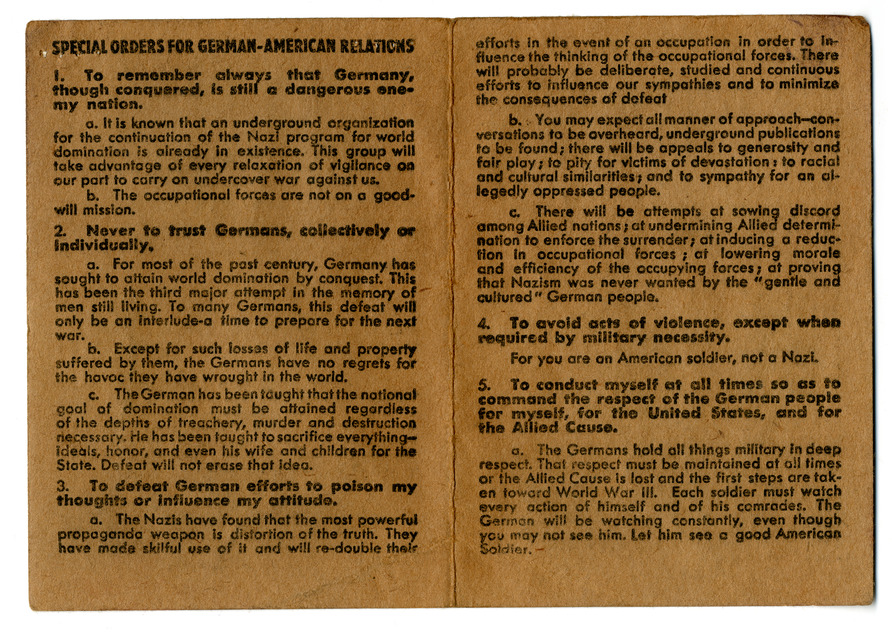Thursday, 28 December [1944] East of Reims
The Jerry didn’t show up last night for the 1ST time in over a week‐ I can’t understand it. The move was absolutely secret. We will try again tonight. Still cold as hell. Even snowed a little today. Been overseas exactly 3 months. Hit the sack at 2100, and at 2330, got message from Bn. to March Order and be ready to move at once. If you have ever crawled out of a nice warm sleeping bag in the middle of the night after a half hours sleep in the cold, dark and snow, you will know how I felt.
Friday, 29 December [1944] East of Reims
Have been March Ordered since 0400. Move orders were changed and will not leave until 2100. Men will sleep today and get ready for an all‐night trip. I haven’t been able to sleep today, too much excitement. I spent the days collecting shells which are plentiful around that area. I found a piece of a German plane and kept it as a souvenir. I forgot to mention that while at Metz, I came into possession of a French 8mm revolver.
Saturday, 30 December [1944] Somewhere in France
Drove all night. Arrived in assembly area about 6000 yards behind lines around 0500 near Neufchateau, Belgium.1A town under heavy fire by Germans and a station where the Third Army supported the fight in the Battle of the Bulge, Neufchateau was located in the province of Luxembourg in the southernmost region of Belgium. The projection of German forces into American territory.
No sleep in two nights. Very cold because of the ice and snow. Started to unpack my bedroll, when messenger arrived from Bn. with a mission. 1ST platoon protecting 347 combat team in reserve, 2D Platoon protecting 912 FA. 345th and 346th combat teams of 87 DIV. attacked this morning. German lines all around us. 3RD army is pushing [continued on next page]


